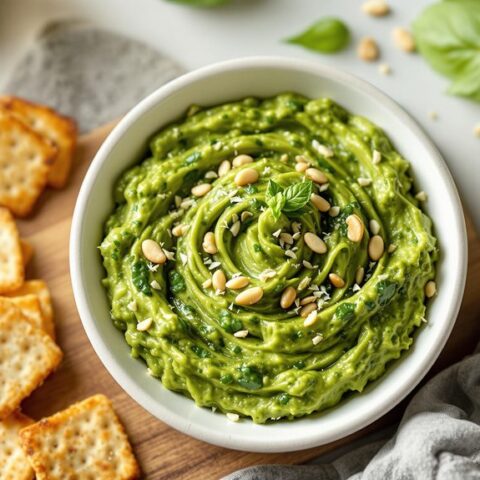
On a ketogenic diet, it is crucial to limit sugar intake to nearly zero grams to sustain ketosis, a metabolic state characterized by raised ketone levels. Excessive sugar disrupts ketosis by increasing blood glucose and insulin release, which promotes fat storage. Hidden sugars in processed foods can unexpectedly raise daily carbohydrate intake beyond the recommended 20-50 grams of net carbs. It is essential to monitor net carbohydrate consumption closely and favor low-carb sweeteners like stevia or erythritol. Reducing sugar intake offers benefits such as stable blood glucose levels and decreased inflammation. For thorough strategies and detailed guidance, additional information is available further below.
Key Takeaways
- Sugar intake should ideally be 0 grams on a keto diet to maintain ketosis.
- Limit daily carbohydrate intake to 20-50 grams of net carbs, including sugar.
- Hidden sugars in processed foods can disrupt ketosis and should be meticulously avoided.
- Regularly monitor blood glucose and ketone levels to adjust carbohydrate and sugar intake.
- Use low-carb sweeteners like Stevia or Erythritol to satisfy sweet cravings without affecting ketosis.
What Is Keto?
The ketogenic diet, commonly referred to as "keto," is a strategic nutritional regimen designed primarily to facilitate a metabolic state known as ketosis. This state is achieved through a significant reduction in carbohydrate intake, typically restricted to 20-50 grams of net carbs per day.
By limiting carbohydrates, the body is compelled to utilize fat as its primary energy source, which is a cornerstone of keto fundamentals. The macronutrient composition of the standard keto diet generally includes approximately 70% fats, 20% proteins, and 10% carbohydrates. This specific ratio is critical in maintaining ketosis and optimizing the metabolic benefits associated with this state.
Among the noted benefits are improved blood glucose management, which can be particularly advantageous for individuals with insulin resistance or type 2 diabetes. Moreover, the diet is often associated with weight loss, attributed to the body's increased efficiency in burning fat for fuel.
Additionally, many individuals report heightened mental clarity and cognitive function, potentially linked to the stable energy supply from ketone bodies. The emphasis on whole foods and healthy fats, while avoiding sugars and high-carb foods, supports the metabolic shift towards fat utilization, underpinning the effectiveness of the ketogenic diet.
Why Sugar Is Restricted
Restricting sugar intake on a keto diet is fundamental due to its direct impact on blood glucose levels, which can prevent the induction and maintenance of ketosis. Ketosis is a metabolic state where the body utilizes fat as its primary energy source. Consuming sugar spikes blood glucose, triggering insulin release, which facilitates fat storage and disrupts ketosis. This metabolic impact counteracts the weight loss objectives of a ketogenic diet.
Additionally, monitoring hidden sugars is important, as they may appear under various names like sucrose, fructose, and corn syrup, and can unsuspectingly raise carbohydrate intake beyond the recommended limits.
Furthermore, sugar addiction is a significant factor; frequent sugar consumption can lead to cravings and dependency, undermining dietary adherence and metabolic stability. Hidden sugars in everyday foods, such as sauces and dressings, can unsuspectingly raise carbohydrate intake beyond the recommended 20-50 grams of net carbs per day, jeopardizing ketosis.
Monitoring sugar intake is paramount for maintaining ketosis and achieving stable blood glucose levels. This stability not only enhances fat-burning efficiency but also supports better overall blood glucose management.
As a result, understanding and scrutinizing food labels and ingredient lists become essential skills for individuals on a keto diet. By minimizing sugar consumption, one can effectively support the metabolic goals of the ketogenic lifestyle, ultimately fostering improved health outcomes.
Carb Limits on Keto
Understanding the precise limits of carbohydrate intake is fundamental for successfully maintaining ketosis on a ketogenic diet. The standard ketogenic regimen typically advises limiting carbohydrate consumption to 20-50 grams of net carbs per day.
Net carbs are derived by subtracting dietary fiber from total carbohydrates, recognizing fiber's minimal impact on blood glucose levels. Adhering to this range is essential, as surpassing the daily carb allowance can disrupt ketosis, prompting the body to shift back to glucose utilization instead of fat oxidation.
It's important to remember that monitoring and adjusting macro targets regularly guarantees alignment with your goals and optimizes your keto experience.
Individual carbohydrate tolerance can vary markedly among individuals. Some may maintain ketosis effectively at the higher end of the spectrum, around 50 grams of net carbs, while others might need to adhere to stricter limits, closer to 10-20 grams.
This personal tolerance necessitates regular monitoring of blood glucose and ketone levels to tailor dietary intake accurately. Additionally, carb cycling—alternating between low and slightly higher carb days—can be strategically employed to optimize metabolic flexibility without compromising ketosis.
Ultimately, understanding and adhering to individualized carb limits is critical for the efficacy of a ketogenic diet. Accurate tracking and mindful adjustment based on physiological responses guarantee that the delicate balance required for ketosis is sustained.
Hidden Sugar Sources
Guiding through hidden sugar sources is critical for maintaining ketosis on a ketogenic diet. Many processed foods, including pasta sauces, salad dressings, and canned vegetables, often contain hidden sugars that can greatly escalate overall carbohydrate intake. Ingredients such as high fructose corn syrup, dextrose, and sucrose frequently appear under various names on nutrition labels, necessitating careful examination.
Seemingly healthy options, like yogurt and granola, can also harbor high levels of added sugars, making label scrutiny essential for keto adherents. Additionally, common condiments, such as ketchup and barbecue sauce, can contain surprising amounts of sugar, often exceeding 5 grams per serving, which could jeopardize ketosis.
Foods marketed as "low-fat" or "fat-free" should be approached with caution, as they often replace fat with higher sugar content to enhance flavor. Awareness of these hidden sugar sources is pivotal for maintaining the low carbohydrate thresholds required by a ketogenic diet.
| Food Type | Common Hidden Sugars |
|---|---|
| Processed Foods | High fructose corn syrup |
| Seemingly Healthy | Added sugars in yogurt, granola |
| Condiments | Sugar content in ketchup, BBQ |
| Low-Fat/Fat-Free | Increased sugar for flavor |
Measuring Sugar Intake
Accurately measuring sugar intake on a ketogenic diet is a critical aspect of maintaining effective ketosis. The recommended daily sugar intake on a keto diet is ideally 0 grams, with total carbohydrate limits set between 20-50 grams. This necessitates precise sugar measurement techniques to guarantee compliance and ideal metabolic state.
A well-formulated ketogenic diet can avoid nutrient deficiencies through proper food selection, as evidenced by the nutrient density of foods like spinach compared to bananas.
To monitor sugar intake effectively, consider the following strategies:
- Calculate Net Carbs: Subtract fiber from total carbohydrates to determine net carbs, which are key for adhering to daily limits.
- Read Nutrition Labels: Vigilantly examine labels to identify hidden sugars in processed foods that can considerably contribute to total carbohydrate intake.
- Monitor Biometrics: Regularly check blood glucose and ketone levels to assess the impact of sugar on ketosis and overall health.
Tracking sugar intake involves understanding individual tolerance levels, as some people may metabolize carbohydrates and sugars differently.
Employing trial and error methods can help in determining personal limits without disrupting ketosis. Utilizing these sugar measurement techniques and tracking sugar intake meticulously can considerably enhance the efficacy of a ketogenic diet, guaranteeing sustained ketosis and ideal health outcomes.
Health Risks of Sugar
Excessive sugar consumption presents significant health risks, contributing to the prevalence of several chronic conditions. High sugar intake is closely linked to obesity, as it promotes weight gain and fat accumulation, particularly in the abdominal region. This phenomenon can be attributed to disrupted sugar metabolism, where excess sugar is converted into fat.
Regular consumption of sugar-laden foods raises blood glucose levels, potentially leading to insulin resistance and escalating the risk of type 2 diabetes. Furthermore, diets high in sugar are known to induce chronic inflammation, a key factor in the pathogenesis of heart disease and metabolic syndrome. The inflammatory response is exacerbated by sugar cravings, which perpetuate a cycle of continuous sugar intake.
Dental health is also compromised by excessive sugar, since sugar serves as a substrate for oral bacteria, producing acids that erode tooth enamel and cause cavities.
Guidelines from the American Heart Association recommend that women and men limit their added sugar intake to no more than 6 and 9 teaspoons per day, respectively. These recommendations aim to mitigate the array of health complications associated with excessive sugar consumption, underscoring the importance of managing sugar intake for overall health.
Benefits of Reducing Sugar

Reducing sugar intake on a keto diet offers numerous benefits, especially in the domain of weight management and metabolic health. A lower sugar consumption is directly associated with decreased calorie intake, promoting fat loss and aiding in effective weight management.
In addition, limiting sugar helps maintain stable blood glucose levels, preventing insulin spikes that can disrupt ketosis and promote fat storage. Lowering sugar intake can also considerably reduce inflammation, which is linked to various chronic conditions.
The advantages of reducing sugar extend beyond weight control:
- Improved metabolic balance: Lower sugar intake is linked to reduced inflammation and enhanced insulin sensitivity, which are essential for metabolic health.
- Decreased sugar cravings: Consuming less sugar can diminish the cycle of sugar cravings, making it easier to adhere to a low-carb lifestyle.
- Better dental health: Reduced sugar consumption lowers the risk of cavities and gum disease, contributing to overall oral health.
Studies have shown that a diet low in sugar can considerably improve overall well-being by decreasing the risk of chronic diseases such as heart disease and type 2 diabetes.
Therefore, reducing sugar intake not only supports metabolic balance but also fosters long-term health benefits, making it a vital component of the keto diet.
Low-Carb Sweeteners
Low-carb sweeteners such as Stevia, Erythritol, and Monk Fruit offer significant benefits for those on a keto diet by providing sweet flavor without raising blood glucose levels.
Stevia and Monk Fruit are natural, zero-calorie options that are substantially sweeter than sugar, necessitating minimal quantities. These sweeteners have a minimal impact on insulin levels, which is essential for maintaining ketosis.
However, individual tolerance should be monitored, particularly with sugar alcohols like Erythritol, which can cause digestive discomfort in some users.
Benefits of Low-Carb Sweeteners
Frequently, individuals adhering to a ketogenic diet seek alternatives to traditional sugar to maintain their metabolic state of ketosis. Low-carb sweeteners provide a sweet flavor without negatively impacting blood sugar levels, making them ideal for those on a keto diet.
Significant benefits of using low-carb sweeteners include:
- Maintaining Ketosis: Low-carb sweeteners like Stevia and Erythritol do not raise blood glucose or insulin levels, essential for sustaining ketosis.
- Caloric Control: Many low-carb sweeteners have minimal or zero calories, allowing for the enjoyment of sweet treats without surpassing daily carbohydrate limits.
- Curbing Sugar Cravings: These sweeteners can help manage sugar cravings by offering satisfying sweetness without the associated carbohydrate load.
Erythritol, a sugar alcohol, is particularly beneficial due to its approximately 70% sweetness compared to sugar, but only contributing 5% of the calories. This makes it a preferred option for keto adherents.
Similarly, Stevia, derived from Stevia plant leaves, is estimated to be between 50 to 300 times sweeter than sugar, requiring only minute quantities to achieve the desired sweet flavor.
Popular Keto Sweetener Options
Identifying suitable sweetener options is essential for those following a ketogenic diet to guarantee they maintain ketosis while satisfying their sweet tooth. Popular low-carb sweeteners include stevia, erythritol, monk fruit, allulose, and sucralose, each offering distinct benefits and flavor profiles.
Erythritol, a sugar alcohol, is particularly valued in keto sweeteners comparison due to its minimal caloric content—approximately 0.24 calories per gram—and negligible impact on blood glucose levels. This makes it an excellent choice for keto recipes.
Stevia, derived from Stevia rebaudiana leaves, is a potent sweetener, being 50-300 times sweeter than sugar, which allows for its sparing usage in culinary applications.
Monk fruit sweetener, extracted from monk fruit, stands out for its zero-calorie and zero-sugar composition, making it another favorable option for ketosis maintenance.
Allulose, a rare sugar, offers around 70% of the sweetness of sugar but with 90% fewer calories and minimal glycemic impact. This unique profile makes it ideal for those requiring a closer mimicry of sugar's sweetness without the associated carbohydrate load.
Practical Reduction Tips

Effectively reducing sugar intake on a keto diet necessitates meticulous planning and informed choices to sustain ketosis. To maintain ketosis, it is imperative to limit net carbohydrate intake, inclusive of all sugar types, to a stringent 20-50 grams per day.
This objective can be achieved through strategic snack alternatives and diligent meal prepping. It's also beneficial to monitor ketone levels to guarantee you remain in ketosis, with regular physical activity enhancing the body's ability to utilize fat for energy.
Incorporating low-carb sweeteners such as stevia, erythritol, and monk fruit is an evidence-based approach to satisfy sweet cravings without notably impacting blood glucose levels. Simultaneously, the critical examination of food labels is essential to detect hidden sugars often present in processed foods, enabling better adherence to daily carb limits.
- Snack alternatives: Opt for keto-friendly snacks, such as nuts and seeds, cheese, or homemade low-carb bars, to effectively manage cravings.
- Meal prepping: Preparing meals and snacks in advance can mitigate the risk of impulsive high-sugar consumption, maintaining dietary consistency.
- Whole foods: Increase intake of whole foods, which generally have lower sugar levels compared to processed counterparts, consequently aiding in maintaining a low-carb regimen.
Community and Support
Engaging with online keto communities can greatly enhance adherence to the diet by providing valuable support, recipe ideas, and motivation from individuals with similar dietary goals.
Access to resources such as meal planning guides, product recommendations, and newsletters focused on keto can assist in managing sugar intake and finding effective sugar alternatives.
Additionally, these communities often emphasize the importance of regular health monitoring and sharing personal experiences with health assessments, which can be beneficial for identifying and addressing potential nutritional deficiencies.
Moreover, participating in dedicated social media platforms fosters a sense of belonging, which can be essential for maintaining a positive mindset and managing cravings.
Benefits of Community Engagement
A supportive community can serve as a pivotal resource for individuals adhering to a keto diet, offering both motivation and accountability. Engaging with a collective of like-minded individuals can greatly enhance one's ability to maintain diet consistency and manage sugar intake effectively. One of the primary benefits of community engagement is the exchange of motivation strategies and the establishment of accountability partners.
- Resource Sharing: Community platforms often provide access to meal plans, recipes, and tips tailored to the keto diet, aiding in the management of sugar intake.
- Enhanced Knowledge: Participation in discussions can deepen understanding of overcoming common challenges such as cravings and identifying suitable sugar alternatives.
- Emotional Support: Emotional reinforcement from community members can bolster resolve, making it easier to navigate setbacks and celebrate milestones.
Social media groups and newsletters facilitate connections with others on similar journeys, fostering a sense of belonging and shared purpose. This network is fundamental in sustaining long-term commitment to dietary goals.
The collective wisdom and camaraderie found within these communities can therefore play an instrumental role in achieving and maintaining a balanced, low-sugar lifestyle on a ketogenic diet.
Finding Support Resources
For individuals adhering to a ketogenic diet, discovering and leveraging support resources is essential for maintaining consistency and managing sugar intake. Engaging with keto forums and social media groups provides a valuable platform for sharing experiences and tips.
These communities offer real-time support from fellow dieters, fostering a sense of belonging and accountability essential for long-term adherence.
Subscribing to newsletters from reputable keto resources can enhance dietary knowledge by delivering the latest research, innovative recipes, and practical strategies for managing sugar intake.
Additionally, participating in local or virtual meetups can facilitate meaningful connections, further enhancing motivation through shared experiences and mutual support.
Utilizing apps or tracking tools specifically designed for the ketogenic diet aids in meticulous monitoring of carbohydrate and sugar intake.
These digital tools provide a structured approach to diet management, ensuring adherence to nutritional goals.
For personalized guidance, seeking online coaching from experienced keto coaches or nutritionists can be highly beneficial.
These professionals offer tailored strategies to overcome dietary obstacles, thereby optimizing the keto experience.
Frequently Asked Questions
How Much Sugar Is Okay on Keto?
For ideal ketosis, sugar intake should be minimized, ideally at 0 grams per day. Instead, prioritize carbohydrate sources from nutrient-dense foods and utilize sugar alternatives like stevia or erythritol to manage sweet cravings effectively.
How Much Sugar Throws You Out of Ketosis?
Understanding the ketosis impact of various sugar sources reveals that even minimal sugar intake, such as a single tablespoon containing 12 grams of carbs, can exceed daily limits and disrupt ketosis, emphasizing the necessity of careful carbohydrate management.
Do You Cut Out Sugar on Keto Diet?
Yes, on a keto diet, it is imperative to cut out sugar entirely to maintain ketosis. Instead, utilize sugar alternatives like stevia or erythritol and be vigilant about hidden sugars in processed foods to avoid exceeding carbohydrate limits.
What Should Your Sugar Level Be on Keto Diet?
To maintain stable keto blood sugar levels, individuals should aim for fasting glucose below 100 mg/dL. Utilizing sugar alternatives like erythritol and stevia can help manage carbohydrate intake without spiking blood glucose, supporting sustained ketosis.
Conclusion
To sum up, the ketogenic diet necessitates stringent control over sugar intake due to its impact on carbohydrate limits and metabolic processes. Identifying hidden sugars and accurately measuring intake are critical for maintaining ketosis. The adoption of low-carb sweeteners and practical reduction strategies can facilitate adherence to the diet. Reducing sugar not only supports ketosis but also yields significant health benefits. Engaging with community support can further enhance dietary compliance and overall success on a ketogenic regimen.









No Comments